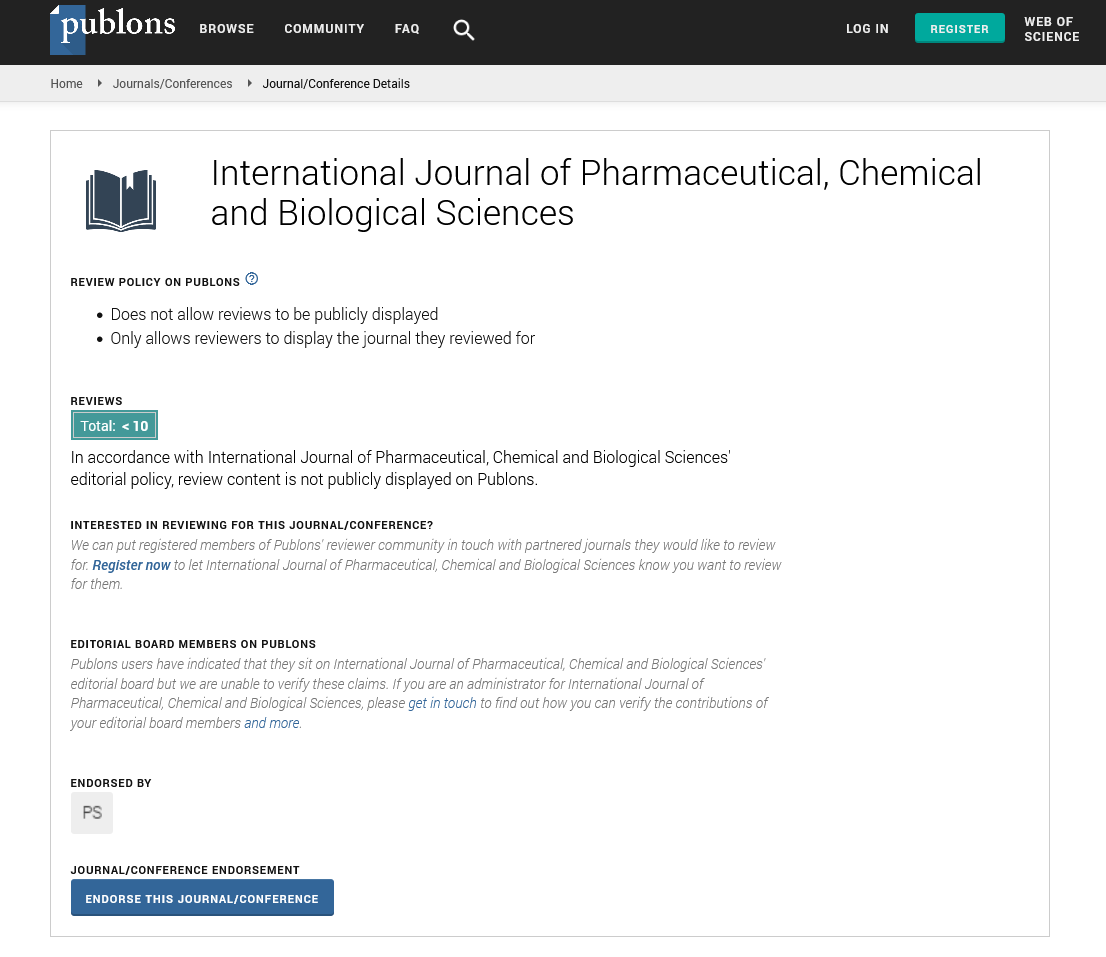Commentary Article - International Journal of Pharmaceutical, Chemical and Biological Sciences ( 2024) Volume 14, Issue 3
Non-Cytochrome P450 Enzymes in Drug Metabolism: Emerging Roles
Francesca Romano*Francesca Romano, Department of Molecular Biology, University of Rome, Italy,
Received: 02-Sep-2024, Manuscript No. ijpcbs-24-148823; Editor assigned: 04-Sep-2024, Pre QC No. ijpcbs-24-148823 (PQ); Reviewed: 18-Sep-2024, QC No. ijpcbs-24-148823; Revised: 23-Sep-2024, Manuscript No. ijpcbs-24-148823 (R); Published: 30-Sep-2024
Description
While Cytochrome P450 (CYP) enzymes have long been recognized as the primary players in drug metabolism, a growing body of research highlights the significant roles of non-CYP enzymes in the biotransformation of drugs and other xenobiotics. These enzymes contribute to various metabolic pathways, including Phase I and Phase II reactions, and play crucial roles in determining drug efficacy, toxicity, and overall pharmacokinetics. Non-CYP enzymes encompass a diverse array of enzyme families, including Flavin-Containing Monooxygenases (FMOs), Monoamine Oxidases (MAOs), Alcohol Dehydrogenases (ADHs), and Sulfotransferases (SULTs), among others. Each of these enzymes has unique substrate specificities and mechanisms, contributing to the complexity of drug metabolism. Flavin-containing monooxygenases, for example, are primarily involved in the oxidation of nucleophile nitrogen, sulfur, and phosphorous compounds. FMOs play an essential role in the metabolism of various therapeutic agents, such as antihistamines and antipsychotics. They are particularly important in the oxidation of drugs containing nitrogen heterocyclic, providing an alternative pathway to CYP-mediated metabolism. This makes FMOs significant contributors to drug metabolism, especially in cases where CYP enzymes are saturated or inhibited. Monoamine oxidases, another class of non-CYP enzymes, are crucial for the metabolism of neurotransmitters like dopamine, norepinephrine, and serotonin. MAOs are involved in the oxidative deamination of amines, which can impact the pharmacodynamics of drugs used in psychiatric and cardiovascular therapies. For instance, the inhibition of MAO can lead to increased levels of monoamines in the synaptic cleft, enhancing therapeutic effects but also raising the risk of adverse effects, particularly when combined with certain dietary components. Alcohol dehydrogenases are important for the metabolism of alcohol and various drugs, including some sedatives and anesthetics. These enzymes facilitate the oxidation of alcohols to aldehydes, influencing both the therapeutic and toxic effects of alcohol-containing medications. Their activity can be affected by genetic variations and environmental factors, impacting individual responses to drugs metabolized by this pathway. In addition to Phase I reactions, non-CYP enzymes are also critical players in Phase II metabolism, where they facilitate the conjugation of drugs and their metabolites to enhance their water solubility and facilitate excretion. Sulfotransferases, for example, catalyze the transfer of sulfate groups to drugs and endogenous compounds, which can alter their pharmacological activity and toxicity. SULTs are involved in the metabolism of a wide range of substrates, including hormones, neurotransmitters, and many drugs. Genetic polymorphisms in SULT genes can lead to variability in drug metabolism, impacting therapeutic outcomes and susceptibility to adverse reactions. Emerging research highlights the interplay between CYP and non-CYP enzymes, revealing a complex network of metabolic pathways that can influence drug disposition. For instance, the activity of non-CYP enzymes can be affected by the metabolites generated by CYP enzymes, leading to feedback mechanisms that alter drug metabolism. Additionally, non-CYP enzymes can compensate for reduced CYP activity, underscoring the importance of considering both classes of enzymes in drug development and clinical practice.
Acknowledgment
None.
Conflict Of Interest
None.

